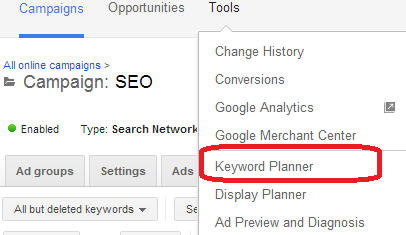You're a business owner. You want more customers.
You know that there are customers searching online for your products and services.
And you know you need to get in front of them. One way or another.
Of course, you could pay search engines like Yahoo or Google to get
in front of your customers IMMEDIATELY.
in front of your customers IMMEDIATELY.
Or you can hire a SEO company to help you to dominate the search engines so that you can show up for search results on search engines like Google and Yahoo for free..(eventually anyway......)
Maybe you're the type that likes doing things yourself. (Although you really should hire good SEO company instead of doing it yourself though......)
BUT YOU DON"T KNOW HOW TO OPTIMIZE YOUR WEBSITE FOR THE SEARCH ENGINES.
In that case,I've got a few tips that can save you a lot of time (and headaches)and get you started on the right path.
Great!
Now if only you can figure out what your customers are typing into Google's or Yahoo's search bar to look for your products and services.
So you think of a few keywords and just for good measure you get your favorite pen out- and begin writing down all the words and search phrases that come to mind.
Satisfied that you've covered all the bases, you think: "If only I could rank on Google or Yahoo for these keywords- I'd have hordes of traffic flooding my website everyday!"
Wrong!
Simply coming up with a bunch of keywords using the powers of your mind will not cut it. (And even if you had tons of traffic coming to your website it still would not mean that you'd have stocks flying off your shelves making you gobs of money everyday. But that's a different story for another day....so stay with me!)
Which is why you will need to do..............
Keyword Research
Let's talk about how to find keywords that count.
That gets traffic. And that's really, the most important element to it all.
This is where keyword research comes in.
You see, most people and business owners ignore this part. And get this part wrong.
What you think about the keywords people are using to search for your products and services isn't important.
It's whether that keyword gets any traffic or not is the element that is most CRITICAL to your business and your SEO efforts.
What's the point of ranking well in the SERPS (search engine ranking positions) if your keyword has little or no traffic?
1. Start by signing into your Adwords account and using the keyword planner.
2. You can find the keyword planner by clicking on TOOLS (See pic below)
3. Then select Keyword Planner.
4. There were 3 types of searches available when you used the keyword planner previously.
Google would let you search traffic volume for keywords based on match type formatting:
- Broad Match -ice cream
- Phrase Match- "ice cream"
- Exact Match- [ice cream]
And that's it. Now you'll have an idea about the traffic estimates, competition, suggested bids, average CPC and others.
The next thing you want to do is to make sure that you follow these basic SEO rules so that search engines understand what your website's content.
This is an extremely important aspect of SEO, and- really, the foundation of all your SEO efforts.
Here's a guide that you may want to read about ON PAGE OPTIMIZATION from Google.
1 Cool Secret To Check Keyword Competition
Most people measure competition for a keyword by simply typing in that keyword into Google's suggest tool and then decide what their competition is like by simply observing the number of RESULTS that are displayed on the page by Google.
Simply type in :
allintitle (one word, followed by a colon, your keyword and quotation marks ) like so:
allintitle:"keyword example"
Suddenly, the results shown take a HUGE drop and goes from 999.000,000 to just 98,600 websites (and videos) competing for the title Google SEO.
A keyword that has less than 10,000 searches is easier to rank and vice versa. Typically, anything above 60,000 mark will be more challenging and harder to rank.
And that's it for today's quick SEO tip!
Find out more about how SEO can help your business by visiting us at Netbuilder.com.my
Here's to your success!
P/S - leave a comment, I'd love to hear what you think!
Thanks!







